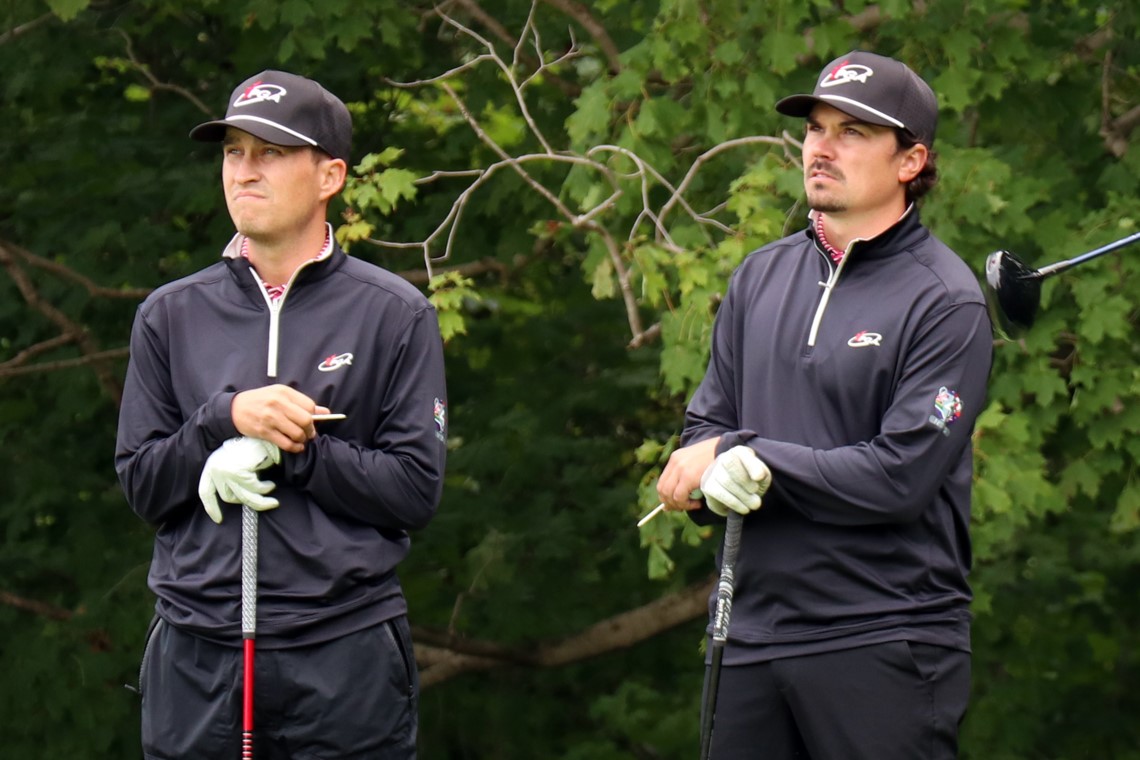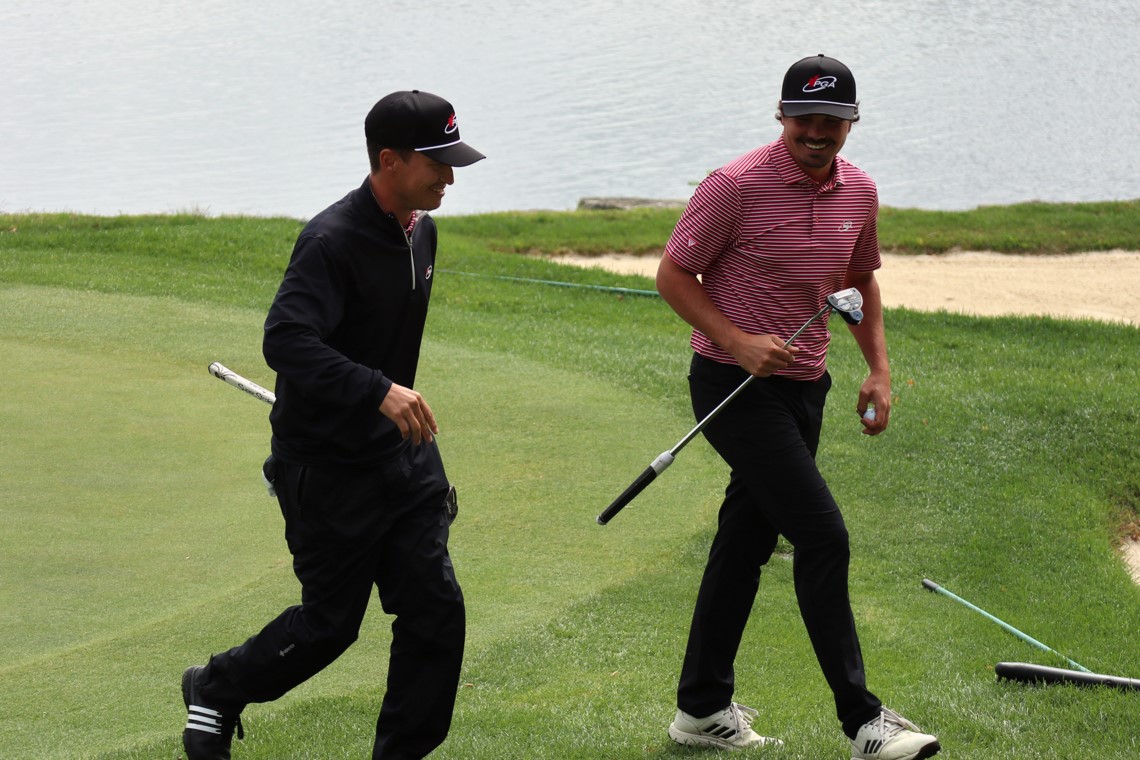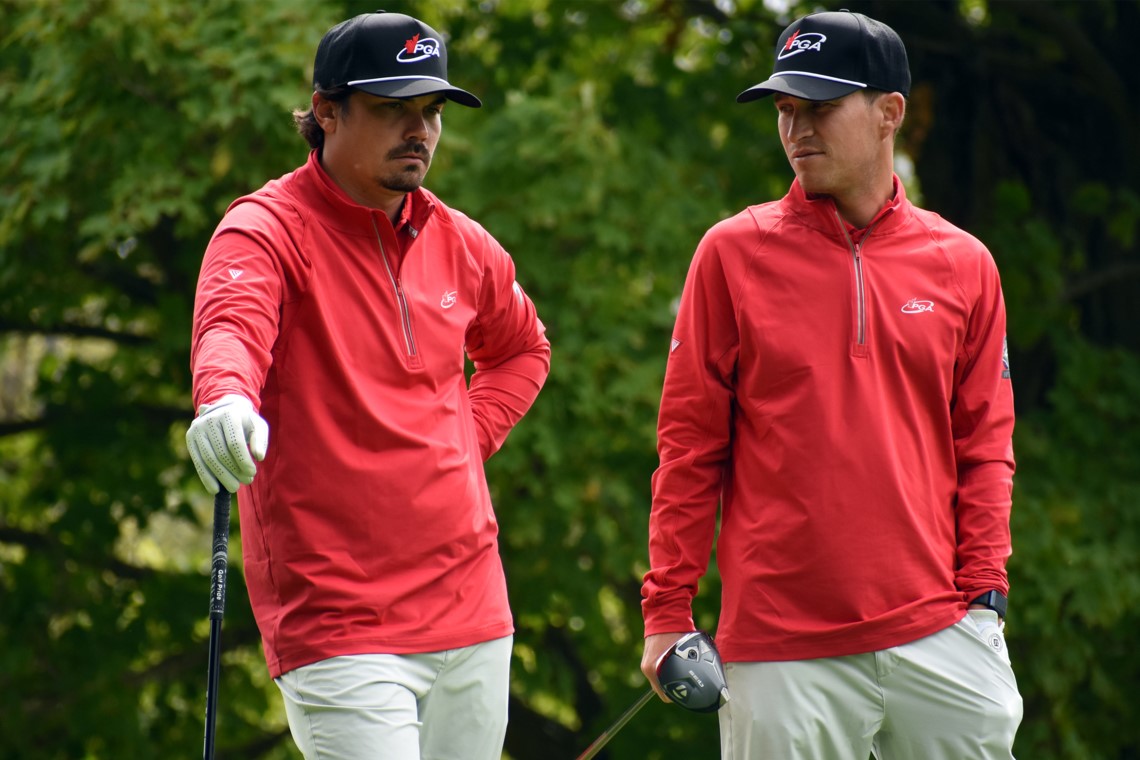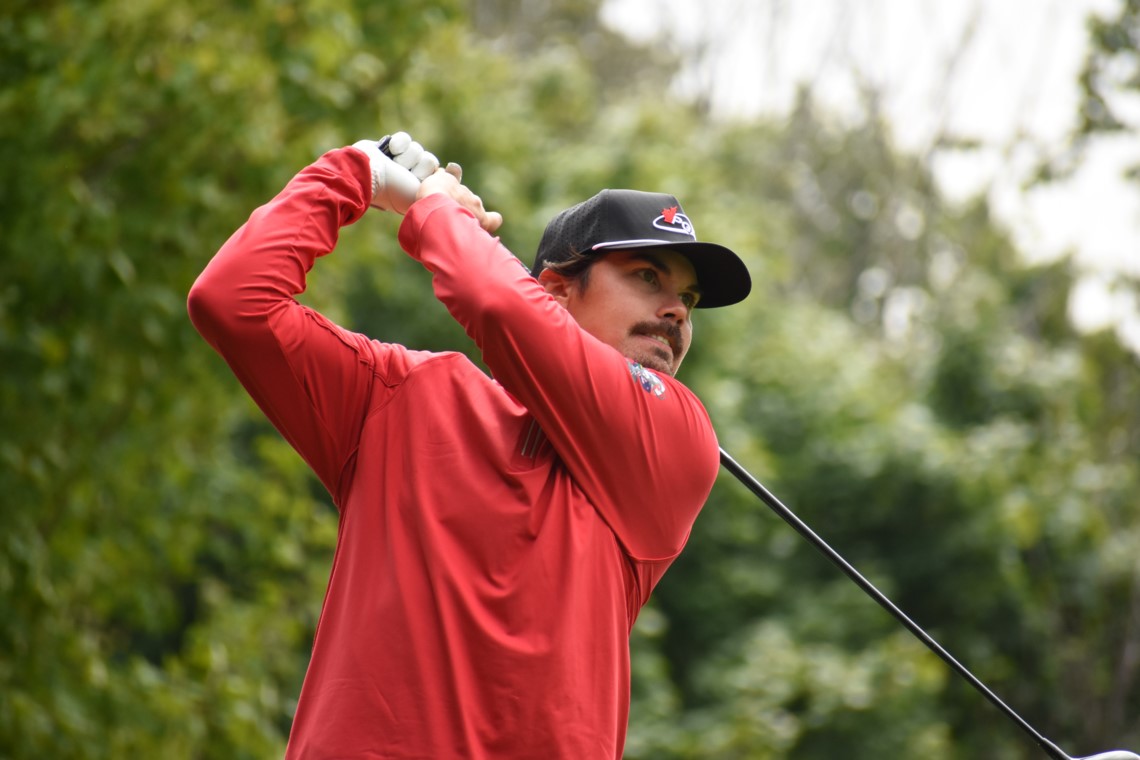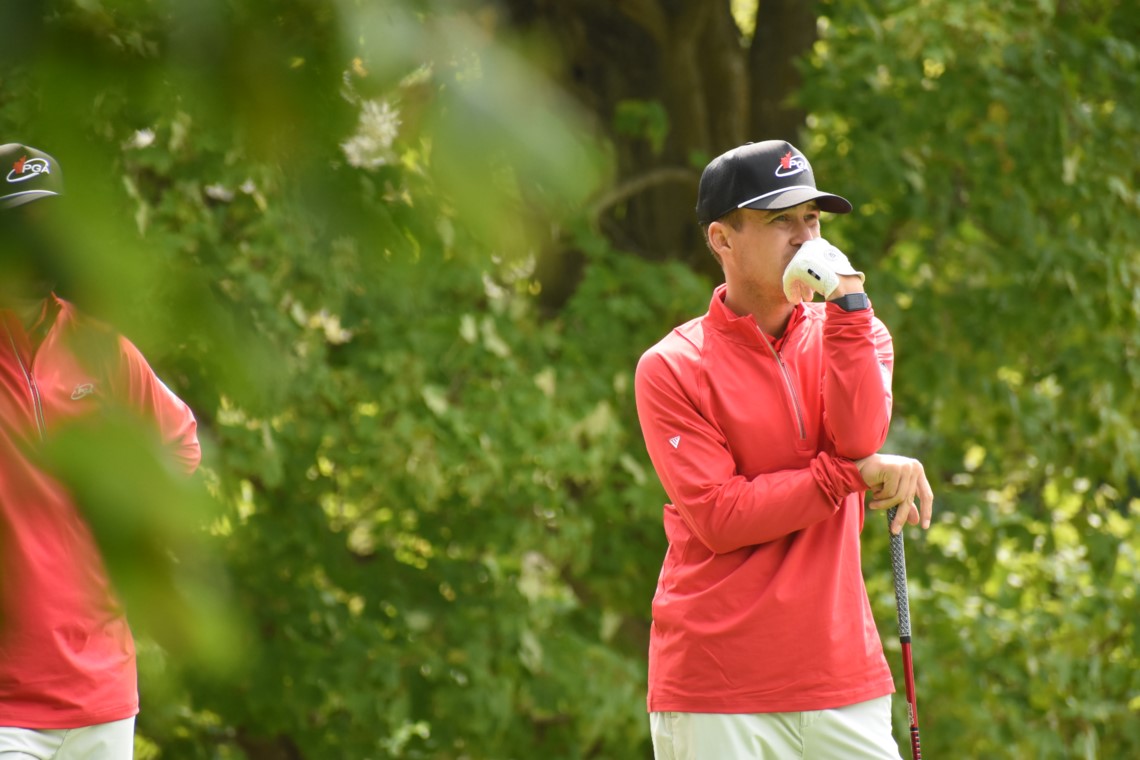How Craig Stefureak and Mitch Fox are Providing Inspiration for Indigenous Athletes
By: Brendan Stasiewich, PGA of Canada
Craig Stefureak and Mitch Fox provide similar accounts when asked about their upbringing.
“The golf course was my babysitter,” said Fox.
“There are videos of me at three years old, hitting balls on the driving range,” said Stefureak.
Both PGA of Canada members mention how Indigenous culture is intertwined with sports. Stefureak came from a family of hockey players; his father played professionally in Europe, while Fox’s dad, Andrew, is a Class "A” PGA of Canada professional.
When Mitch was just seven years old, in 1995, he watched his father win the North American Golf Championship. Andrew’s younger brother, Rocky, finished as the runner up.
“Those were my role models growing up,” said Fox. “I think that's why I fell so in love with golf, I would hang out with my uncle who was trying to play professionally at the time on the Canadian Tour, and I would just spend every day with him. So, those are my idols.”
With virtually no First Nation’s representation at the highest level of the sport, individuals within local communities – and family – often serve as those role models.
Stefureak, from Caledonia, ON, grew up playing at Sundrum (now MontHill) Golf Club. Meanwhile, Fox, who grew up across Alberta; namely, Okotoks, Lethbridge, Edmonton and Calgary, says he honed his game when his dad became a Professional at the late Indian Lakes Golf Club, just outside Edmonton, when he was 12-years-old.
Earlier this season, for Stefureak and Fox, the other was simply a name on a leaderboard they were trying to top.
That quickly changed in September when the pair made up half of the PGA of Canada’s Four Nation’s Cup Team. Fox and Stefureak were partners in the team competition and helped Canada win its second-consecutive Four Nation’s Cup title.
Since then, the pair has bonded over their similar upbringing and heritage, and a shared desire to help their communities. A day hasn’t gone by without them texting.
“We have this similar background. A lot of native kids that are around sports grow up doing the same kind of thing,” said Fox. “You play native hockey tournaments in the winter, and then you play the scrambles and native golf tournaments in the summer, so we had a lot in common because sports are huge in native culture, so it's easy to get along with someone that grew up very similar to you.”
The pair also experienced similar barriers within the sport growing up, the same barriers which still exist for indigenous kids today.
“Golf has always primarily been a well-to-do sport, so without the financial backing, it's very difficult to get to the next level,” said Stefureak. “I'm just very grateful that the people around me, family and community, supported me and believed in me and got me to this point in my career.”
Fox, who had one of the best seasons of all time for a Canadian junior when he was 17, winning the Alberta Junior, Canadian Junior and Canadian Amateur, and finished 15th in the U.S. Junior Amateur, recognizes how intimidating it is to play in events where you’re the only First Nation’s player in the field.
“I had a very good junior golf career, but I also made a lot of mistakes growing up playing junior golf - I didn't go to university - so I have a lot to lean on where I can help younger golfers that are navigating playing junior golf,” said Fox. “It's very intimidating, I think, for a lot of native kids to go out and play tournaments where it's all white people. You'll be one of only maybe two or three native kids, so it's tough going out there.”
“If I can kind of be a sounding board for them, I have no problem with that, and I enjoy it,” said Fox.
“Once you get onto the golf course, it doesn't matter where you're from, how much money you have, none of that matters. There are no politics in playing a golf tournament. You just go out there, you shoot a low score, and you do what you can,” said Fox, who mentioned Dean Spriddle’s coaching as a contributing factor to his perspective. “I think the best advice is just going out there and playing as much as possible.”
Making a Difference
The P.D. Ross Trophy, given to the winner of the PGA Championship of Canada, has been hoisted 102 times – not once had it been lifted by an indigenous golfer. In the 103rd playing of the event this past summer, Craig Stefureak changed that – winning by three strokes at Pinegrove in Montreal, QC.
While the win meant everything for Stefureak, who is currently preparing for DP World Tour Q-School this fall, it meant even more for his community.
“I think it kind of shows that there is room for improvement (to help) First Nations golfers,” said Stefureak. “There are so many amazing First Nation’s people, amazing athletes, hopefully this can expand some kid’s horizon and their thoughts and inspire and show it is possible to have this background and to win a tournament as great as the PGA Championship of Canada.”
Stefureak mentions that he plans to bring the trophy back to Manitoulin Island to celebrate with friends and family when the golf season comes to a close.
“You grow up idolizing different people in your community first, then into maybe your province, then your country, then worldwide as you get older. I think those initial building blocks for young kids, to see people that had a very similar upbringing do incredible things and win national championships and be where they want to be and look up to them, I'm very humbled and very honoured to be able to do that,” said Stefureak. “I hope I can do the best I can to be a really good role model for the next generation.”
“I want to leave the game and my community in a better place than it was, and I think that's what we all should be doing. I think I have a very good platform to be able to do that so I hope I can do that over the coming years and over my career,” finished Stefureak.
Mitch Fox is currently working with his father, Andrew, on “7 Generations Golf”, a non-profit grassroots initiative that will grow the sport and provide opportunity within indigenous communities.
Since launching this past year, 7 Generations Golf has partnered with The First Tee, Golf Canada and Alberta Golf. Due to the interest across Alberta, Andrew left his full-time job to prepare for 2026.
“It is going to start quite grassroots, just running golf clinics out at reserves or local courses, focusing on young indigenous kids,” says Fox. “When they get older, that's where I'll step in a little more once they're looking to play competitive golf where we can help navigate the avenue of what tournament to play - because if you don't grow up at a country club, it can be very hard to know what tournaments to play.”
In addition, 7 Generations Golf will help young golfers play collegiate golf, and even help them turn professional through the PGA of Canada.
The brand name, as per 7 Generations Golf, is rooted in the indigenous ideology of considering the impact of our present actions on the next seven generations. It serves as a reminder of our responsibility to invest in the future of our youth and the role sports - such as golf - can play as a powerful tool to drive personal growth and empowerment.
It is fair to say that both Mitch Fox and Craig Stefureak are living that brand statement, empowering First Nation’s golfers across the country and becoming role models for the next generation.
